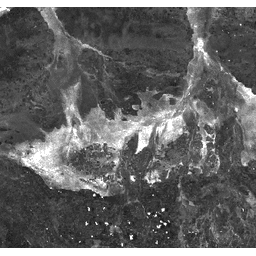Page Summary
-
This dataset contains deprecated Landsat 5 TM annual composites of the Burn Area Index (BAI), superseded by a Collection 1-based dataset.
-
The Burn Area Index (BAI) is derived from Red and Near-IR bands and highlights charcoal signals in post-fire images.
-
The dataset covers the period from 1984 to 2012 and includes a single 'BAI' band with a 30-meter pixel size.
-
Landsat datasets are public domain and can be used without copyright restrictions, though acknowledging the USGS as the data source is recommended.

- Dataset Availability
- 1984-01-01T00:00:00Z–2012-01-01T00:00:00Z
- Dataset Producer
- USGS
- Tags
Description
These Landsat 5 TM composites are made from Level L1T orthorectified scenes, using the computed top-of-atmosphere (TOA) reflectance. See Chander et al. (2009) for details on the TOA computation.
As of May 1, 2017, the USGS is no longer producing Pre-Collection Landsat, and therefore this collection is complete. Please switch to a Collection 1-based dataset. See this documentation page for more information.
The Burn Area Index (BAI) is generated from the Red and Near-IR bands, and measures the spectral distance of each pixel from a reference spectral point (the measured reflectance of charcoal). This index is intended to emphasize the charcoal signal in post-fire images. See Chuvieco et al. (2002) for details.
These composites are created from all the scenes in each annual period beginning from the first day of the year and continuing to the last day of the year. All the images from each year are included in the composite, with the most recent pixel as the composite value.
Bands
Bands
| Name | Pixel Size | Description |
|---|---|---|
BAI |
30 meters | Burn Area Index |
Terms of Use
Terms of Use
Landsat datasets are federally created data and therefore reside in the public domain and may be used, transferred, or reproduced without copyright restriction.
Acknowledgement or credit of the USGS as data source should be provided by including a line of text citation such as the example shown below.
(Product, Image, Photograph, or Dataset Name) courtesy of the U.S. Geological Survey
Example: Landsat-7 image courtesy of the U.S. Geological Survey
See the USGS Visual Identity System Guidance for further details on proper citation and acknowledgement of USGS products.